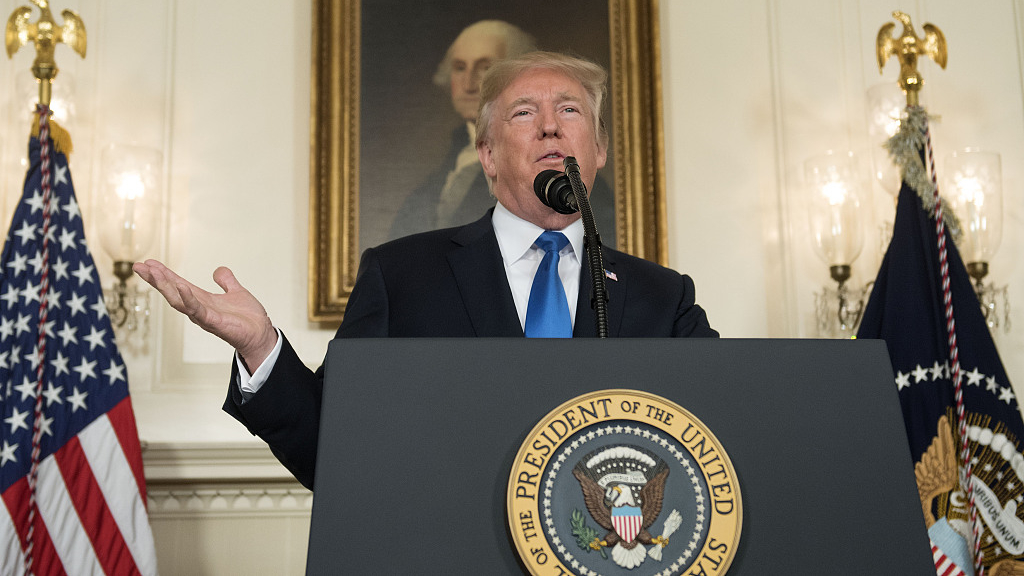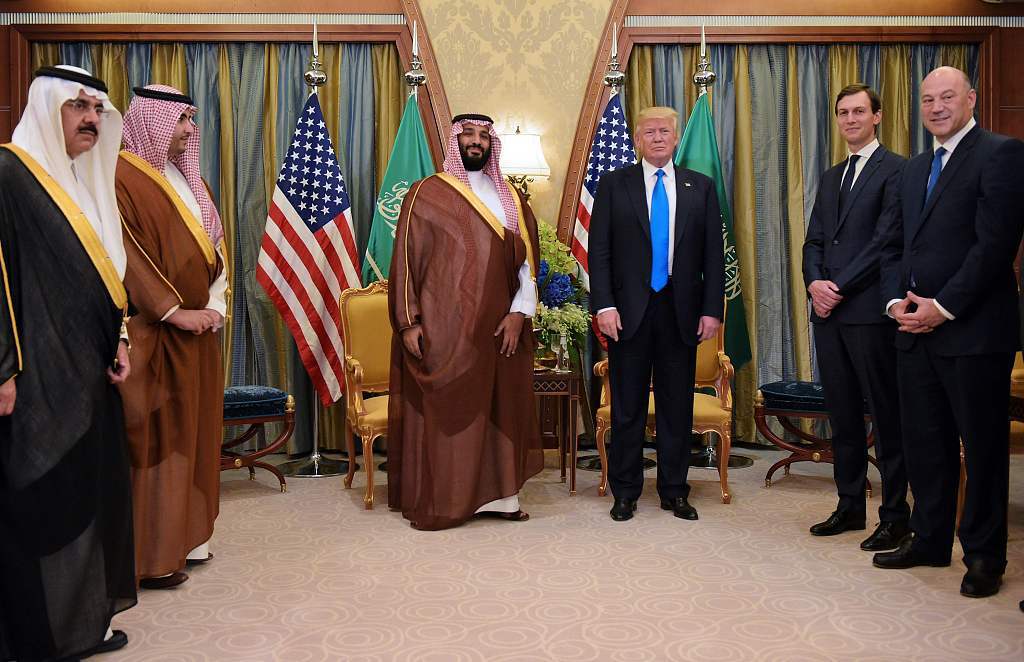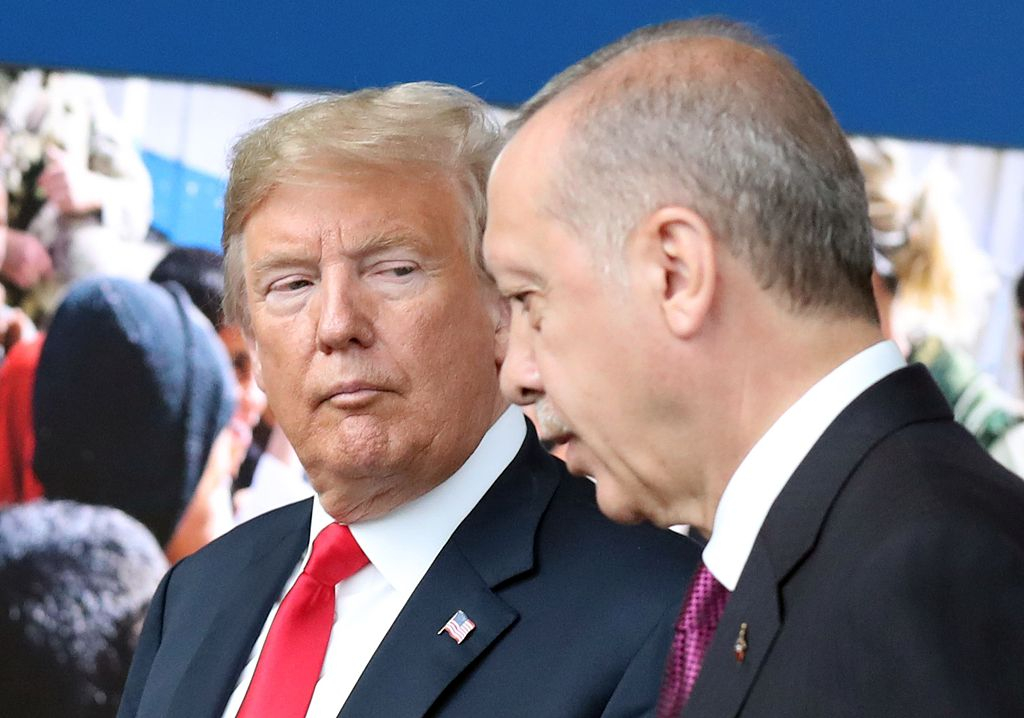

Editor's note: Andrew Korybko is a Moscow-based American political analyst. The article reflects the author's opinion, and not necessarily the views of CGTN.
The U.S. is dealing self-inflicted damage to its reputation as a reliable military partner after playing political games with arms sales to Saudi Arabia and Turkey, two Great Powers that had hitherto been regarded as its allies (with the latter officially being so through their shared NATO membership).
Congress tried to stop the over 8 billion U.S. dollars in arms that the Trump Administration wanted to sell to Saudi Arabia but the President utilized a little-known legal provision to authorize the sale without their approval, while the Pentagon just recently began phasing Turkey out of the F-35 program following its decision to go through with the S-400 anti-air defense system deal with Russia. Both of these concurrent scandals collectively cast doubt on the U.S.' reliability as a military partner and prove that political considerations are sometimes more important than economic ones when clinching a deal with it.

U.S. President Donald Trump (C-R) meets with Saudi Deputy Crown Prince Mohammad bin Salman in Riyadh, Saudi Arabia, May 20, 2017. /VCG Photo
About those, the Saudi-led war in Yemen has finally begun to attract considerable domestic political attention within the U.S. as a result of the deteriorating humanitarian crisis in the peninsular country since the start of the international phase of its conflict in early 2015. President Trump's Democrat foes hope to politicize the issue of American military support to Saudi Arabia to score points with voters ahead of the upcoming 2020 elections, claiming that their country is partially responsible for the Yemenis' suffering because of its arms sales to Riyadh.
They demand that tangible action be undertaken by the Saudis to mitigate civilian casualties before the U.S. resumes its military exports to the Kingdom, but the Defense Department believes that America is competing with Russia and China for clientele in the country and therefore advised the President to controversially circumvent congressional approval for the gargantuan sale.
This incident has proven to be very embarrassing for the Saudis because they hadn't expected their regional military campaign to become a heated domestic political issue in the U.S.' presidential election cycle. Not only that, but the Kingdom must have naturally begun to consider whether it can depend on American military support going forward because it's very possible that arms shipments could be curtailed or even suspended if a Democrat wins the presidency next year.
While there are understandably some across the world who applaud Congress for supposedly considering humanitarian issues when deliberating its approval of international arms deals, this doesn't take away from the fact that the Democrats might be insincere about their intent and only playing political games. From a state-to-state perspective, this controversy raises serious concerns about the possible impact of domestic political calculations on international military agreements.
As for Turkey, the situation is the reverse of what it is for Saudi Arabia in that the U.S. is punitively phasing the country out of the F-35 program in response to its willingness to honor its S-400 deal with Russia despite the Pentagon's very loud disapproval. Turkish officials have said time and again that the American military wares on offer don't sufficiently meet their country's national security requirements and that's why it's turned to Russia instead in this instance, though many in the U.S. don't believe that and suspect that Ankara is in the midst of a game-changing geopolitical pivot that their government must stop at all costs.

U.S. President Donald Trump (L) talks to Turkey’s President Recep Tayyip Erdogan, as they arrive for the NATO summit, at the NATO headquarters in Brussels, Belgium, August 17, 2018. /VCG Photo
Accordingly, the first casualty of this security dilemma is the previously agreed-upon military cooperation between the U.S. and Turkey, with Acting Defense Secretary Patrick Shanahan dishonorably kicking Turkish pilots out of their training program in Arizona. The lesson to be learned is that the U.S. doesn't take too kindly to its partners diversifying their military portfolios with other states and will take decisive action to punish them if they dare to approach other partners instead.
Altogether, the Saudi and Turkish arms sales scandals raise enormous concerns about the U.S.' reliability as a military partner each in their own way. The Saudi case shows that domestic political games can create uncertainty in the international arms trade, while the Turkish precedent proves that America will punish what it regards to be its wayward partners if they begin looking elsewhere to meet their needs.
Despite whatever President Trump might say, business isn't always just business when it comes to dealing with the U.S. but could also be a complicated political dance when it concerns military sales, one which some of its other partners might not want to participate in anymore in the future after seeing the stressful saga that Saudi Arabia and Turkey have gone through over the past year.
(If you want to contribute and have specific expertise, please contact us at opinions@cgtn.com.)

Copyright © 2018 CGTN. Beijing ICP prepared NO.16065310-3
Copyright © 2018 CGTN. Beijing ICP prepared NO.16065310-3